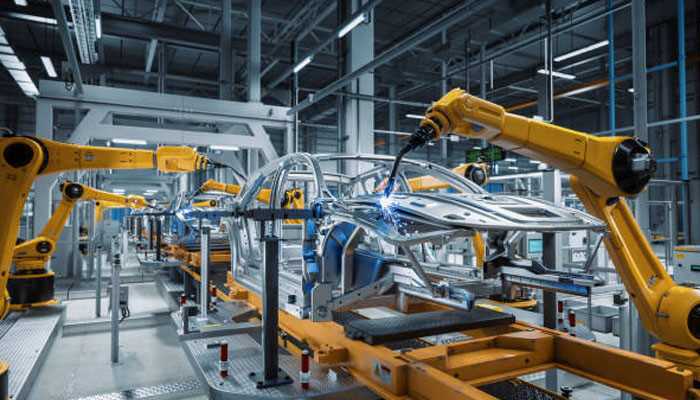In the bustling world of manufacturing, where efficiency, precision, and safety are paramount, the advent of cobot arms has sparked a revolution. These innovative machines, often referred to as collaborative robots, are reshaping the landscape of automation by seamlessly integrating with human workers and enhancing productivity across various industrial sectors.
Understanding Cobot Arms
Cobot arms are a breed of robotic systems designed to work alongside human operators in manufacturing environments. Unlike traditional industrial robots confined to cages or restricted areas, cobot arms are engineered to operate safely in close proximity to humans. They boast a range of sophisticated sensors and programming that enable them to detect and respond to human presence, ensuring collaborative and safe interaction.
The evolution of cobot arm technology has been marked by significant advancements in versatility, agility, and intelligence. Early iterations focused primarily on basic tasks, such as pick-and-place operations. However, modern cobot arms are equipped with advanced features, including vision systems, force sensing capabilities, and intuitive programming interfaces, enabling them to perform a diverse array of tasks with precision and efficiency.
Applications of Cobot Arms in Manufacturing
The versatility of cobot arms lends itself to a wide range of applications within the manufacturing sector. From assembly and production line tasks to material handling, quality control, and beyond, these robotic assistants are transforming the way goods are produced.
In assembly operations, cobot arms excel at tasks requiring dexterity and precision, such as inserting components, fastening screws, and performing intricate assembly processes. Their ability to work alongside human operators in tight spaces or complex configurations makes them invaluable assets in optimizing production workflows.
Material handling and logistics represent another area where cobot arms shine. These robots can effortlessly lift, move, and manipulate objects of varying shapes and sizes, streamlining warehouse operations and reducing the risk of repetitive strain injuries among human workers.
Quality control and inspection are critical stages in manufacturing processes, where precision and accuracy are non-negotiable. Cobot arms equipped with advanced vision systems and sensors can autonomously inspect products for defects, ensuring that only high-quality goods reach the market.
Advantages of Cobot Arms in Manufacturing
Enhanced efficiency and productivity are perhaps the most significant advantages of cobot arms. By automating repetitive and labor-intensive tasks, these robots can dramatically increase throughput and reduce cycle times, ultimately driving down production costs and improving profitability.
Improved safety for workers is another compelling advantage of cobot arms. Unlike traditional industrial robots, which pose a risk of injury to humans due to their sheer size and power, cobot arms are designed with safety in mind. Their collaborative nature and advanced sensing capabilities enable them to operate safely alongside human workers without the need for physical barriers or protective fencing.
Increased flexibility and adaptability are inherent characteristics of cobot arms. Unlike fixed automation systems that are rigid and inflexible, these can be easily reprogrammed and reconfigured to accommodate changing production requirements or product variations. This agility allows manufacturers to quickly adapt to market demands and stay ahead of the competition. In many operations today that require precision and dexterity, a flexible robot arm is essential.
Challenges and Limitations
Despite their numerous advantages, cobot arms have challenges and limitations. Technical limitations and constraints may hinder the performance of cobot arms in specific applications. Factors such as payload capacity, reach, and speed may limit the suitability of these robots for specific tasks or industries. Additionally, the complexity of programming and configuring cobot arms may pose challenges for operators with limited technical expertise.
Compatibility issues with existing infrastructure represent another potential obstacle to the widespread adoption of cobot arms. Integrating these robots into legacy systems or workflows may require extensive modifications or upgrades to ensure seamless operation and compatibility with existing equipment.
Future Trends and Innovations
Advances in cobot arm technology are expected to continue, with manufacturers investing heavily in research and development to enhance performance, functionality, and reliability. Emerging technologies such as artificial intelligence (AI) and machine learning are being integrated into cobot arms to enable autonomous decision-making and adaptive behavior, further enhancing their capabilities and versatility.
Integration with AI and machine learning holds the potential to revolutionize the capabilities of cobot arms. By analyzing vast amounts of data and learning from experience, these robots can adapt to changing environments, optimize performance, and even anticipate future needs, making them invaluable assets in the quest for manufacturing excellence.
Regulatory and Ethical Considerations
Manufacturing robots are not uncommon in the industry, with many businesses reliant on industrial and collaborative robots on assembly lines.
Regardless of the type of robot arm chosen, compliance with safety standards and regulations is essential to ensure the safe operation of cobot arms in manufacturing settings. Regulatory bodies such as the Occupational Safety and Health Administration (OSHA) in the United States and the European Union Machinery Directive (CE marking) impose strict guidelines for the design, operation, and maintenance of robotic systems to protect the safety and well-being of workers.
Ethical implications of human-cobot collaboration raise questions about the impact of automation on the workforce and society as a whole. While cobot arms offer numerous benefits in terms of efficiency, safety, and productivity, concerns about job displacement, inequality, and worker autonomy must be addressed to ensure a fair and equitable transition to a more automated future.
Conclusion
Cobot arms are poised to revolutionize automation in manufacturing, offering a potent combination of efficiency, safety, and flexibility. As these robots continue to evolve and mature, they will play an increasingly integral role in shaping the future of manufacturing, driving innovation, and driving economic growth. Despite the challenges and uncertainties that lie ahead, the potential benefits of cobot arms far outweigh the risks.




